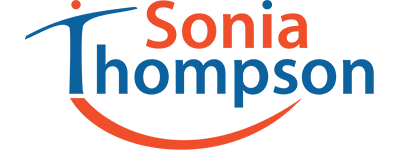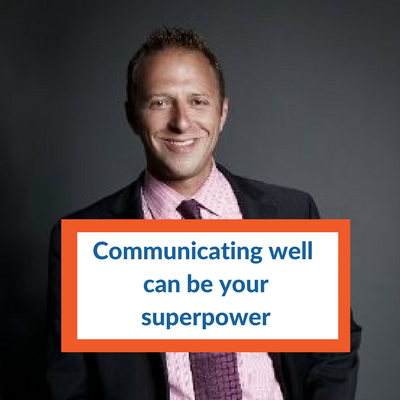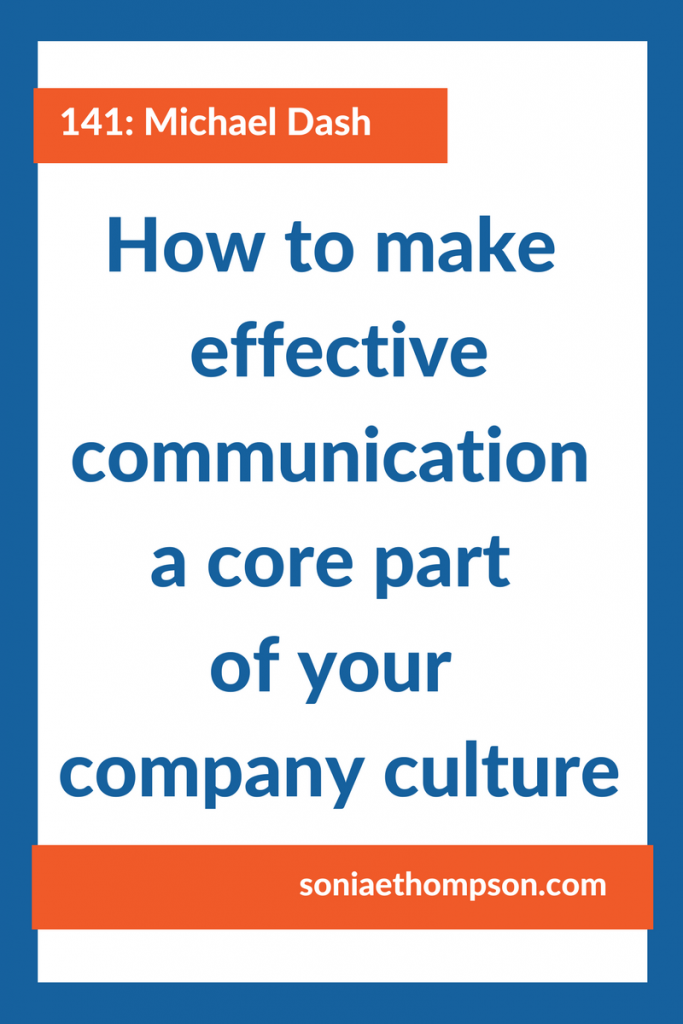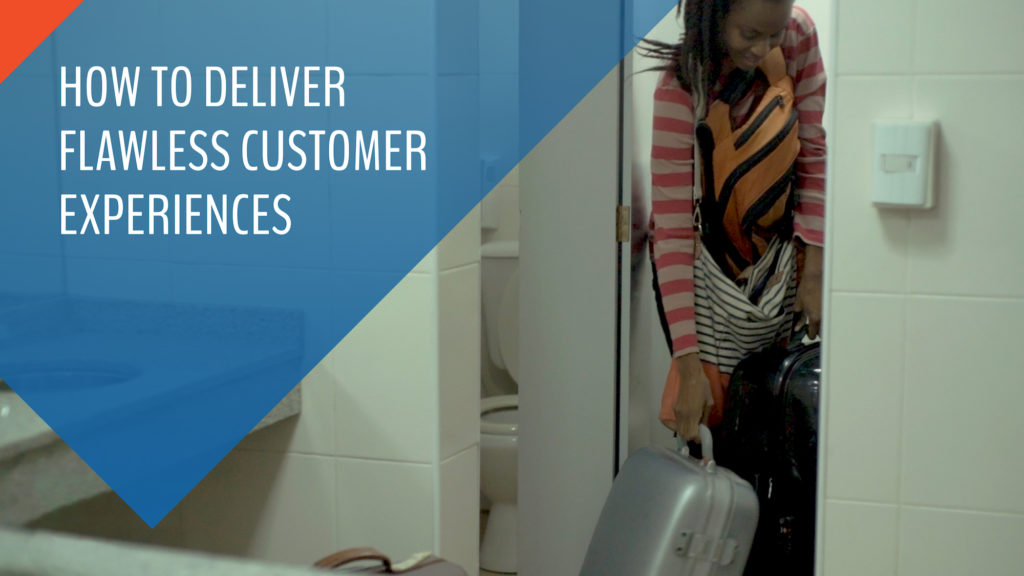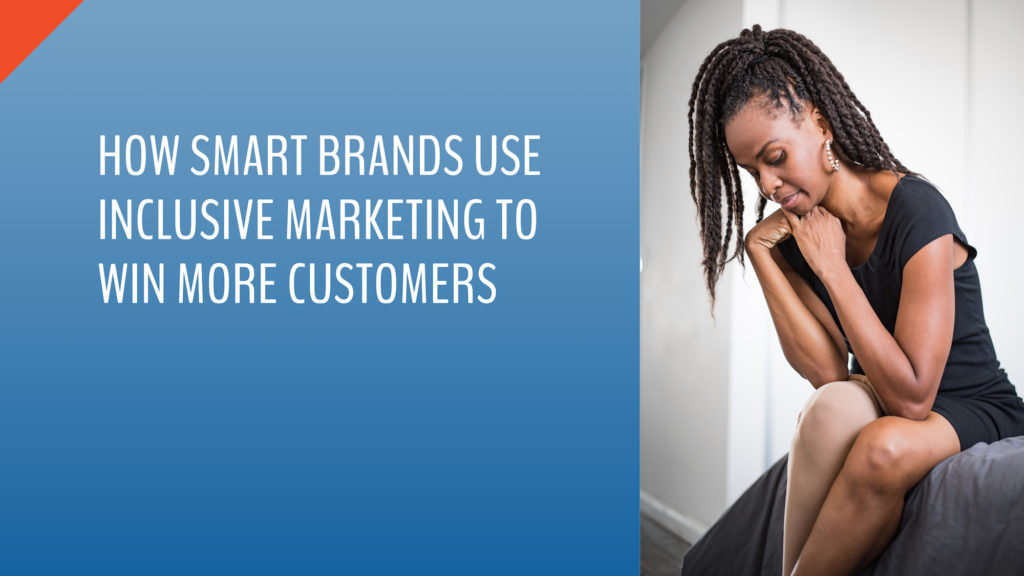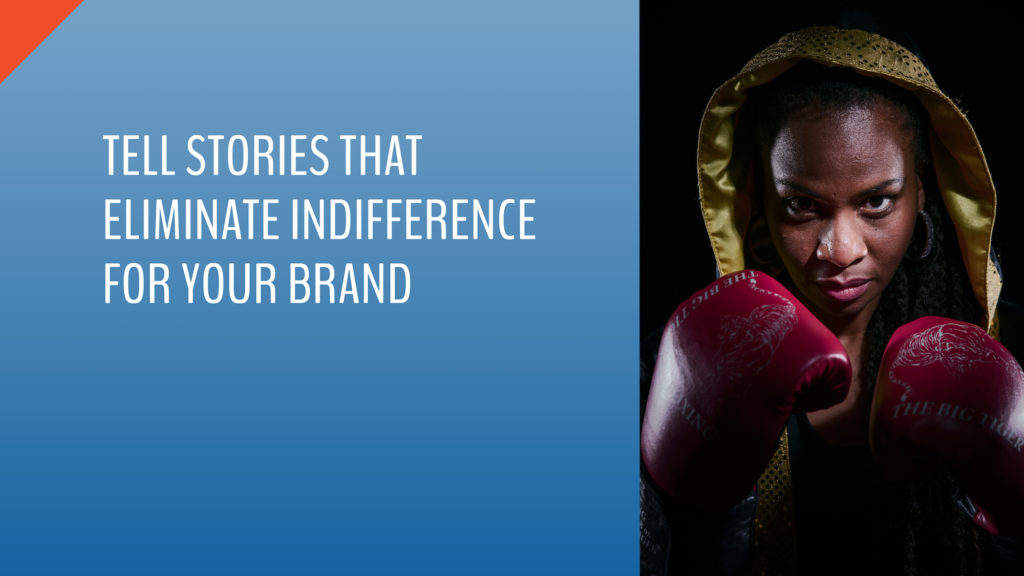Today we are talking about communication, and specifically how core it is in your ability to build a high-performing team and win more customers.
To go deeper on this topic, I chatted with Michael Dash, founder and CEO of Parallel HR Solutions, a global company he’s run for the past 11 years.
We can learn a ton from Michael, in particular how he gets his team to focus on communicating well so they can serve their customers better.
Key points:
- What communication has to do with delivering remarkable customer experiences
- Why thinking about your team members beyond just the work they do help you build a high-performing team
- How to build a company culture that embodies the philosophy and values you want
- How build a team that has the cultural intelligence needed to run a global business
- What to do with illegitimate customer complaints
- The downfall of many companies (even those with fantastic products)
- The type of intimacy you need to develop with your customers
Listen to the 28-minute episode here:
Read a transcript of the episode here:
Why you can’t separate communication from your company culture
Sonia Thompson: Hello, Michael. Thank you so much for joining me today. How are you?
Michael Dash: I’m great. Thank you for having me. I’m excited to talk to you today.
Sonia: Me, too. All right, well let’s go ahead and dive right in. Tell me about your business, Parallel HR Solutions.
Michael: We are in the staffing business, specifically with a focus in technology. I would say about 75% of our business is focused on working with companies who are looking to hire software engineers, and architects, and CTOs, and infrastructure type people. The other 25%, we focus on some finance and some support type roles. These are both on a full-time basis and a consulting basis if a company would want to hire them for six months or a year, or a certain period of time, where they actually remain on our payroll, but they’re out at our clients working on-site.
Sonia: Got it. What is the specific problem that you saw for the people you serve?
Michael: We really solve the talent gap that exists in the world today, specifically within technology, there’s a huge talent gap. Obviously, the demand and the supply are not measuring up. There’s far more demand than people who have the proper skills here in the US to meet the demand numbers. We go out there, and we basically headhunt and find specific skillsets within other organizations and recruit them out for our clients.
Sonia: Got it. Why do your customers choose you? ‘Cause I imagine there are plenty of other recruiters, and staffing agencies, and companies that can help them with this, so why do they choose you?
Michael: Well, I mean, we are specifically a relationship business. I mean, everything we do is people. I mean, our products people, our deliveries people, services people, internal people, clients are people. There’s no specific hard product, per se. It’s all in relationships and building that trust, and then bringing both candidates and clients through a great relationship while we’re going through the process with them and then delivering the final product, per se, which is actually a qualified candidate who goes in and interviews great, and who has the technical depth to provide to the client that they’re looking for to work on some of the complex issues that they’re dealing with, and to be able to then go through the offer process, close that candidate, and help onboard that candidate with the client. That entire experience and making that a smooth experience and transition, and communicating every step of the way is really why clients work with us and continue to come back to work with us.
Sonia: Got it. I like how you said that your business is all about relationships because I feel like every business is a relationship business. It’s just a matter of whether or not people categorize it in that way. Of course, it impacts the way you operate and how you treat your customers. I’m curious, what does a remarkable customer experience mean to you? I think you touched on it a little bit in terms of how you guys operate, but how would you characterize it?
Michael: It’s all in communication because we’re dealing with people in multiple layers. You have the end client, okay, and then you have their specific recruiting team, right, who also works internally with their engineering team, so they have a layer of communication before we even get to us. If their HR team and their engineering team are not communicating, that will affect the experience we’re able to provide to our candidates. It’s their relationship first starting there, then the relationship we, Parallel HR, has with both the engineering and HR team at our client, and then how we transform it, so like account managers and salespeople at Parallel HR, and how we communicate with our internal recruiters. At each of these, there’s two layers, right?
Sonia: Right.
Michael: There’s two layers at the company, at the client, two layers within Parallel HR, and then how we communicate our recruiters to the candidates that we’re recruiting. Of course, those candidates always have somebody else in their life that they are depending on, and relying on, and talking to that they usually don’t tell us about, but we always know it’s happening. It’s usually a spouse, or family members, or something, and that’s a whole other layer of communication, also. So, really lining up these layers of communication and making sure that we’re transparent throughout the entire process, communicating effectively on timelines and expectations will either end up in a great experience or in a broken experience.
Sonia: Got it.
Michael: But that is the key to making it smooth.
Sonia: I imagine there are plenty of things that you can do to impact the culture of how that experience plays out at the elements that your organization controls, right? I want to talk about that in a second, but first I want to go to the part that you said that is a really major component of this that impacts what a candidate does and doesn’t do, which is that other person that they are confiding in on the other end of the spectrum. Have you found a way or attempted a way to try to enhance that experience for your particular candidates and users so that it helps the overall process go more smoothly with your company?
Michael: What we try to do is we try to find out upfront when we’re first speaking to them how they go about making their decision, who’s involved in the decision, who they rely upon. Is it a spouse? Is it parents? Is it siblings? Is it a mentor? Now, candidates lie. It’s just part of the business. There are lots of them that are completely upfront and transparent, but it just depends on the relationship you’re able to build with that candidate. The better relationship, the more comfortable they’re gonna be with sharing this information with you. That’s really what we try to impress upon our recruiters about building that relationship with the candidates so then we can find out who they’re relying on because if they are … For instance, we deal with a lot of people within technology, so we’re dealing with all different cultures because there’s a tremendous amount of Indian people in technology, Russian people in technology, and several others.
Sonia: Right.
Michael: But if I take, for example, one of my longest employed people here is her name is Mahi, and she’s Indian and she’s been working with me for 11 years since we opened the business. So when we’re dealing with an Indian employee, if it’s a male, for instance, and we’re relocating them to Utah, a lot of times, they’re concerned with the culture here and how they’re gonna fit in. So immediately, what we try to do is connect somebody like Mahi who moved here from India, and who’s been in Utah for over 10 years, and knows the Indian temple, and knows the Indian community here, and knows all the events and how it is for children and all that stuff.
We try to connect her with that person’s spouse so that they can connect on a different level than I’m gonna ever be able to connect with that person. We really try to find those things that there’s a similar connection to, shared beliefs or shared values or they grew up similarly because they’ll be more comfortable talking to each other, and they’ll also have a deeper level of knowledge to share with them as to what the true experience is here so they’re not listening to me, some white guy from New Jersey, telling them about how the Indian community is here. It doesn’t always work that well.
How to create a sense of belonging among both your team and your customers
Sonia: Right. I love that. I think that’s such a smart approach and a smart strategy to extend the details that are often times unstated, but that play a major role in somebody deciding to move forward with what it is that you’re trying to help them with in terms of career and job opportunities. I think that’s great that you do it, particularly that area of focus with the Indian population that you end up working with a lot. As you start to go through and work with people from different parts of the world, how do you work to staff your team so that you’re able to account for that level of diversity so that you’re able to create that sense of belonging for the people that you’re serving?
Michael: Well, that’s a lot easier said than done, especially … I mean if I was in New York City, that wouldn’t be a problem, but I’m in Salt Lake City, Utah. Diversity and Salt Lake City, they don’t really go hand in hand.
Sonia: Okay.
Michael: It’s a challenge, but I did work in New York for 10 years. We’ve placed a lot of people … When I say placed, in our industry, that means we found them jobs and brought them to a client. They’re on a client of ours for several years, maybe, so we have relationships that we can rely on. We can connect them with other people that we’ve placed before. For instance, if we’re relocating somebody who has a Ukrainian or Russian background, there is a, believe it or not, even though diversity is challenging here in Utah, there has been a big shift over the last 10 years with the amount of technology jobs here that have gone through the roof. It’s one of the hottest markets in the country …
Sonia: Wow.
Michael: That you have a lot of pockets of people from other countries, including Russians, and Ukrainians, and stuff. I can call somebody that I’ve placed in the past and say, “Hey, can you do me a favor? Can you talk to this guy? He’s concerned about if there’s gonna be other people from where he’s from and that speak Russian or that go to these Russian restaurants,” you know, just whatever it is.
Sonia: Right, right, right.
Michael: And then I would connect them with them. Otherwise, I would do my best to get on the phone with them and basically explain to them. I mean, I moved here from New York City, so I know the drastic change from moving from New York City to Salt Lake City, and it is a drastic change. I can really relate from that standpoint and give them a really good idea of what to expect because it’s not easy, especially when you move here at first. It took me a good six months to be like, okay, I’ll stay here. The first six months, I was like, I gotta get out of here.
Sonia: Got it, got it. Well, I think it’s wonderful. It goes back to what you said in the beginning about your business is a relationship business and that you can lean on and tap into those relationships that you’ve built, and cultivated, and nurtured over the years so you’d be able to help create that sense of belonging and create that experience that is a desirable one for the people that you’re serving, especially whenever they’re new to you.
Michael: 100%. If you don’t provide that level of service, then somebody else will.
How to infuse effective communication into the DNA of your company culture
Sonia: Yeah, yeah. I want to go back to the culture that you create. Now you mentioned that so much of what you do is around, of course, relationship building and the way in which you communicate. How do you get everybody who’s on your team to fall into that same vision, and so act upon that in terms of level of importance to on the way you communicate, on building those relationships so that it’s not just something that you say we’re about, but it’s something that everybody fully embodies in their work?
Michael: Well, it’s through practice. I tell everybody, first of all, the business is about relationships, but it’s also about leverage, right? You have to know all the players involved if you want to leverage a situation. If you’re trying to get an answer out of a candidate, you have to know if they’re delaying because they need to speak to somebody that they’re close to, a relative, a family member, a spouse, and that spouse is out of town or whatever it is, right? The level of detail that must be known is very deep.
Sonia: Okay.
Michael: When I’m provided general information for my team, I push back on them every time. I say, “I can not go to the client with this. I need you to ask this specific question and find this level of detail so I can manage expectations appropriately, and I will not be able to do that unless you ask the question specifically, not a general question.”
Sonia: Right.
Michael: Because if you ask a general question, you will get a general answer.
Sonia: Okay.
Michael: That’s what I really profess to them. The more detailed question, the more detailed answer. I’d rather have more information than I need and manage that information accordingly and share what is appropriate than have less information I need and be kind of behind the eightball in trying to manage expectations.
How to build a global team that excels in cultural intelligence
Sonia: Got it. What has been your biggest leadership challenge as you’ve been building growing your business, in terms of delivering the kind of experience to your customers that will make them come back to you over and over again? ‘Cause it’s interesting, ’cause you’ve got two different customers that you’re serving.
Michael: Yeah. Well, I have an international team and I have a team in India, actually. It’s a different challenge when you have an international team and they are representing you in the marketplace. Some candidates have a predetermined bias when they hear from somebody. I shouldn’t just say candidates, some people, right?
Sonia: Yeah.
Michael: If they hear from somebody from another country and they have an accident or whatever, they might not treat them as fairly as they would somebody else.
Sonia: Right.
Michael: It’s a balance that we have to maintain with making sure that we are representing our clients and ourselves appropriately in the marketplace, that team and my team here in Utah, and then at the same time, make sure that the person who does complain about something, it’s legitimate and it’s not just bashing somebody because they’re not from the US.
Sonia: Got it.
Michael: And they’re calling about a job in the US.
Sonia: Got it.
Michael: Now, our team all has … We have a VoIP system just like most companies out there. They all have our local phone numbers and everything, but I will get complaints from time to time, and some of them, a lot of them, are just not legitimate. They just don’t want to be called by somebody who is not local to the US, excuse me, local to Utah.
Sonia: Got it, got it.
Michael: From Utah, part of the Utah community.
Sonia: Okay.
Michael: Yeah, and so that has been a bit of a challenge. That’s even a challenge for me when I call them and they hear my Jersey accent. They’re like, “Well, you ain’t from here. What are you doing calling me?”
Sonia: Got it.
Michael: I get the same thing. That’s been a slight challenge.
Sonia: It’s interesting that you say that, in terms of where you’re … You’re becoming a more and more global society, and just having to deal with those nuances of the specific location of where you’re located, sometimes it … Every place has their own unique and distinct culture that you have to figure out how to navigate and adapt to.
Michael: Yeah, yeah. Some places are slower to adapt than others.
Sonia: Yeah, yeah. Now because you have a global team and you’re dealing with candidates from all over the world, what do you do to make sure that the people that on your team and the companies that you’re working with have a degree of cultural intelligence to kind of tear down some of those barriers that make it easier for everybody to be able to work well together?
Michael: Yeah. We go through a screening process with our clients, as well. We meet our clients. We go on-site. We have tours of their facilities. We want to be able to put our candidates … We want our candidates to be able to see our clients out of our eyes, right?
Sonia: Okay.
Michael: So as if they were there and everything. We meet various employees at our clients. We learn about what the culture is like and the diversity that is there so we can really explain it in a deep level and deep manner, and then we do training throughout the year on a variety of different topics to make sure that we’re all aligned. At the end of the day, we’re all people, right?
Sonia: Yeah.
Michael: We all want the same things. We want a work environment where we’re supported by our colleagues, by upper management, where we’re put in a position to be successful, and where expectations are communicated effectively, and where you’re compensated at a fair value. I think those are the most important things, and that’s what we try to communicate and instill along the way with, both, our clients and candidates.
3 Keys to business success
Sonia: Got it. Now what are your three keys to success?
Michael: Wow. There’s more than three, but I’ll try to give it to you. I think one thing that’s very, very important is leading by example. When you’re a leader within an organization, it’s not … Just telling people to do something is not an effective … It hasn’t been effective for me. I used to do this. But when you actually perform the task and then bring that person onboard to watch you perform the task or to perform it with you, then you have a different experience and they have a different understanding. They’re like, oh, well if the boss is gonna do it, I can certainly do it, right?
Sonia: Mm-hmm (affirmative).
Michael: I think leading by example is the first one. The second one is really every day, being passionate about what you do and hustling, so coming in every single day busting your ass.
Sonia: Yeah.
Michael: Excuse my French. That was French. Really, in our business, you have to have a high level of energy because we’re calling people on the other end of the phone. If you’re having a bad day and you’re just like, “Hey, Jack. I have a job,” they’re gonna be able to tell immediately, and they’re gonna be disinterested and not want to talk to you anymore, so having an extremely high level of energy is extremely important.
I think the number one thing for all companies in all industries, a crusty world, the number one thing for success is communication. If you are not communicating effectively, then everything can fall apart.
Sonia: For sure.
Michael: It doesn’t matter how great your product is, how great your service is, how great your employees are. Communication, and I see it in my clients, I see communication breakdowns time and time again in my clients. It affects the recruiting process, but it also … If that’s what’s happening in my client in the recruiting process, then I am sure it’s happening in the engineering department, and it’s happening in the marketing department, and it’s happening in all these other departments, as well. It can kind of give you an idea of how that organization runs.
Sonia: For sure. This has been super cool. Where can people find you if they want to learn more about you, your company? You also told me you just climbed Kilimanjaro, if they want to learn more about that. Where can people find you and learn more about what’s going on with you?
Michael: Yeah, I did just climb Mount Kilimanjaro. They can find me on social media. It’s Michael Dash, D-A-S-H. I’m on Linked In, Michael G. Dash. Facebook is Michael Dash. Then my website is MichaelGDash.com. I actually just started a series that’s coming out tomorrow on addicts and entrepreneurs. It’s called F.A.T.E. From Addict to Entrepreneur, where I highlight former addicts who are now entrepreneurs and building multi-million-dollar companies.
Sonia: Wow.
Michael: I was a former addict, myself. I had a 20 year gambling addiction and I’ve been clean for 12 years now. Tomorrow, the first article and interview comes out with Joe Polish of The Genius Network. That’s a project I’m gonna be working on, and then I have a book coming out, called Chasing the High, which is about addiction, entrepreneurship, overcoming obstacles, mindset, transformation, all that stuff. That comes out in a couple months. If you go to my website, you’ll be able to get updates on all that stuff.
Sonia: Awesome stuff. That’s super cool. Congratulations on 12 years being free from that. I just commend you on all the work that you’re doing. I’ll put all that info in the show notes so people are able to access it easily.
Michael: That’s great. Thank you. I appreciate that.
Sonia: Okay. Any parting words of wisdom for business leaders who want to deliver remarkable experiences for the people that they’re serving?
Michael: My advice would be to get to know your customer as well as you know your employees, and really dig in and find those things that really can connect you, that you have in common with them, and that you can leverage for a greater experience and play up on those, and make every experience a great one, and just continue driving it through all of your employees, as well.
Sonia: Got it, all right. Well, this has been super cool. One other final question, one final question before I let you go and that’s just to dig inside your head a little bit more. That’s to deliver a line from a movie that speaks to you and explain why you chose it.
Michael: That’s not a great question to ask me because I don’t know what it is. So many people around me can remember lines of movies, and what the movie is, and everything. I just am not good at remembering …
Sonia: That’s okay.
Michael: Those types of lines.
Sonia: That’s okay.
Michael: I couldn’t even pull a movie reference for you, but I-
Sonia: Well, I want to hear about Kilimanjaro. Tell us about the biggest sort of aha moment, defining moment, that was part of your experience of scaling the mountain.
Michael: I lost a good friend, who was 35-years-old and he was a Navy Seal, a couple months ago. Two days before he passed, he climbed Kilimanjaro. He was in my thoughts, and prayers, and mind the whole time. When I got up to the top, it’s six days up and then two days down.
Sonia: Wow.
Michael: When I finally got up to the top and I summited, I was just filled with emotion. I turned around and there was a beam of sun shooting down from the sun as if he was saying, “It’s about time you got up here.”
Sonia: Aww.
Michael: Because I know he probably did it in half the time I did ’cause he’s a Navy Seal and he’s amazing.
Sonia: Right, right.
Michael: I just starting flowing with tears. It was just very emotional. I would recommend, you know, anybody who has the opportunity to do it, I would recommend it. The people in Africa are some of the most amazing people I’ve ever met in my life. They are so grateful and fortunate for everything they have. It’s just the little things in life that fill their heart and bring the spirit out that I’ve just never been exposed to before. I would definitely recommend anybody who has the opportunity to do it, it’s a life-changing experience.
Sonia: Fantastic. Thank you, again. This has been super cool. Your story was beautiful, so thank you.
Michael: Thank you. I appreciate it.
Show notes:
- Parallel HR Solutions
- Michael Dash on LinkedIn
- Michael Dash on Facebook
- Michael’s website
- FATE (From addict to entrepreneur)
Free Mini-Course: The Customer Magnet Playbook
Free Mini-Course: The Customer Magnet Playbook
7 Essential elements your business needs to consistently win more customers
- Framework based upon in the trenches experiences from 150+ business and thought leaders
- Science-based explanations to support why the elements of the blueprint work
- Action items to help you get some quick wins
